In This Issue
The opinions, beliefs and viewpoints expressed in this publication are those of the authors. They do not necessarily reflect the opinions, beliefs, viewpoints or official policies of Autism Society Alberta. |
|
|
Dr. Deborah Barrett Who Will Take Care of Our Kids Fund
Every year, the Dr. Deborah Barrett Who Will Take Care of Our Kids Fund supports projects that ensure people with autism have lives full of opportunity. We are pleased to launch the inaugural project – a presentation series entitled Planning for the Future.
Part One can be viewed here.
Click on the posters below to find out more and to register for upcoming presentations.
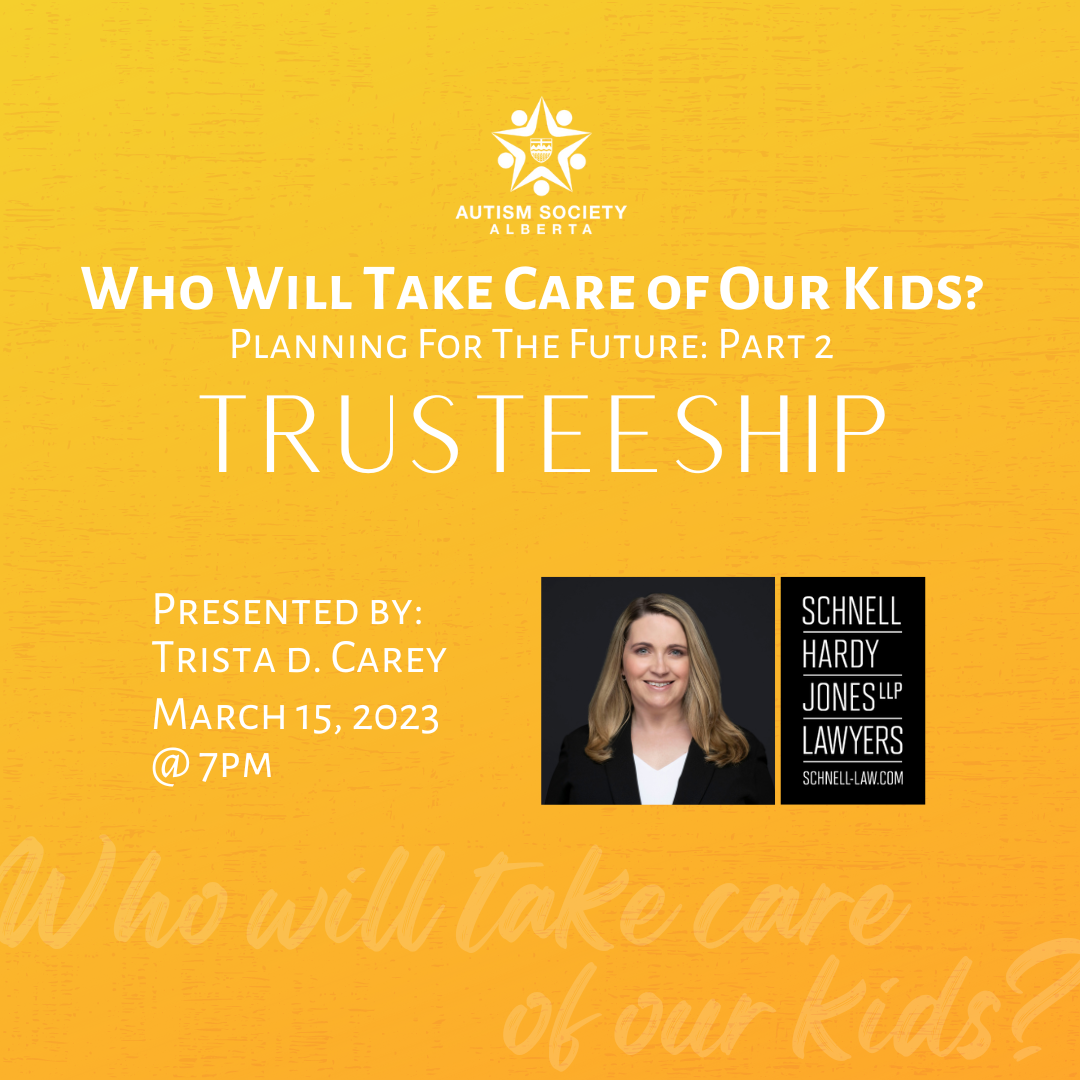
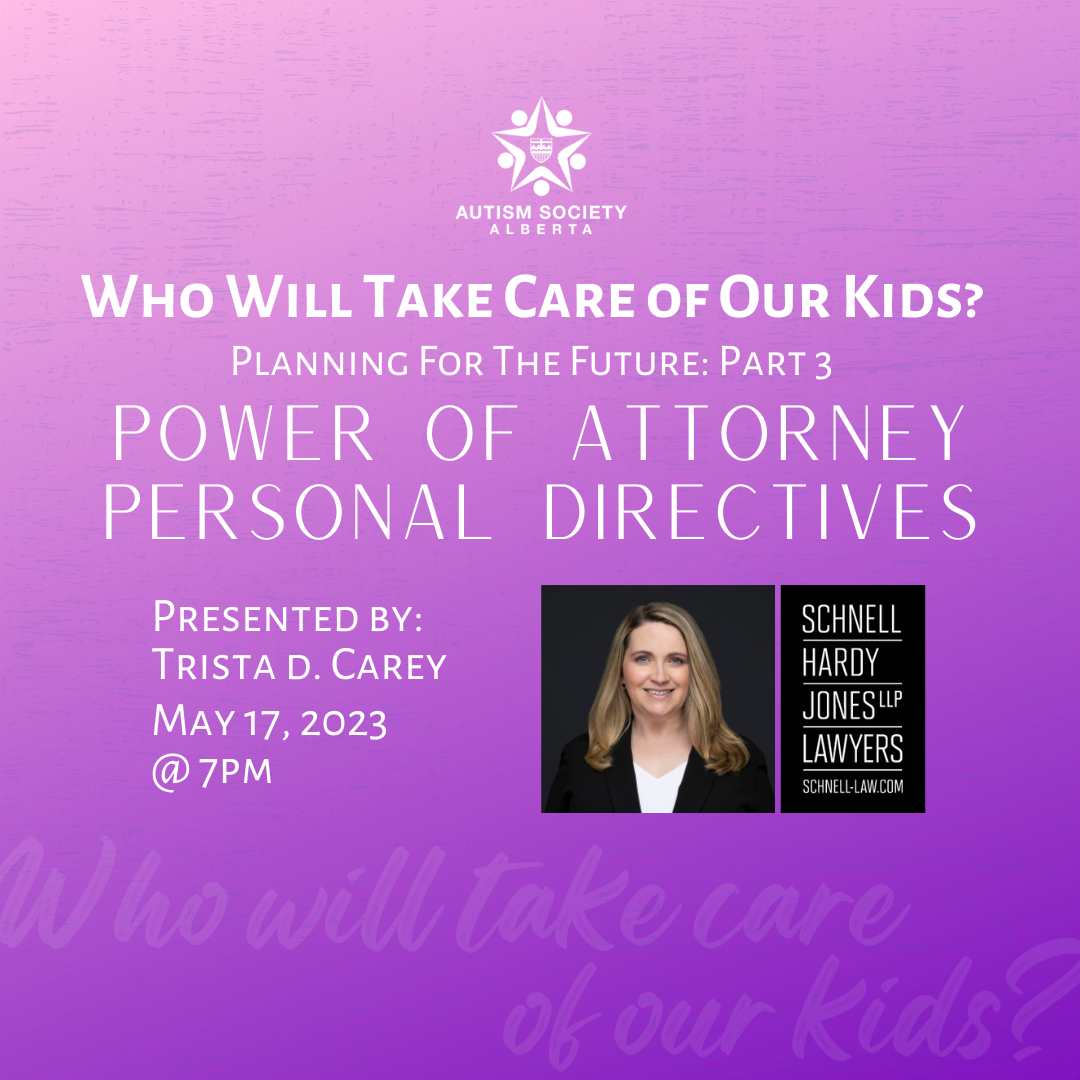
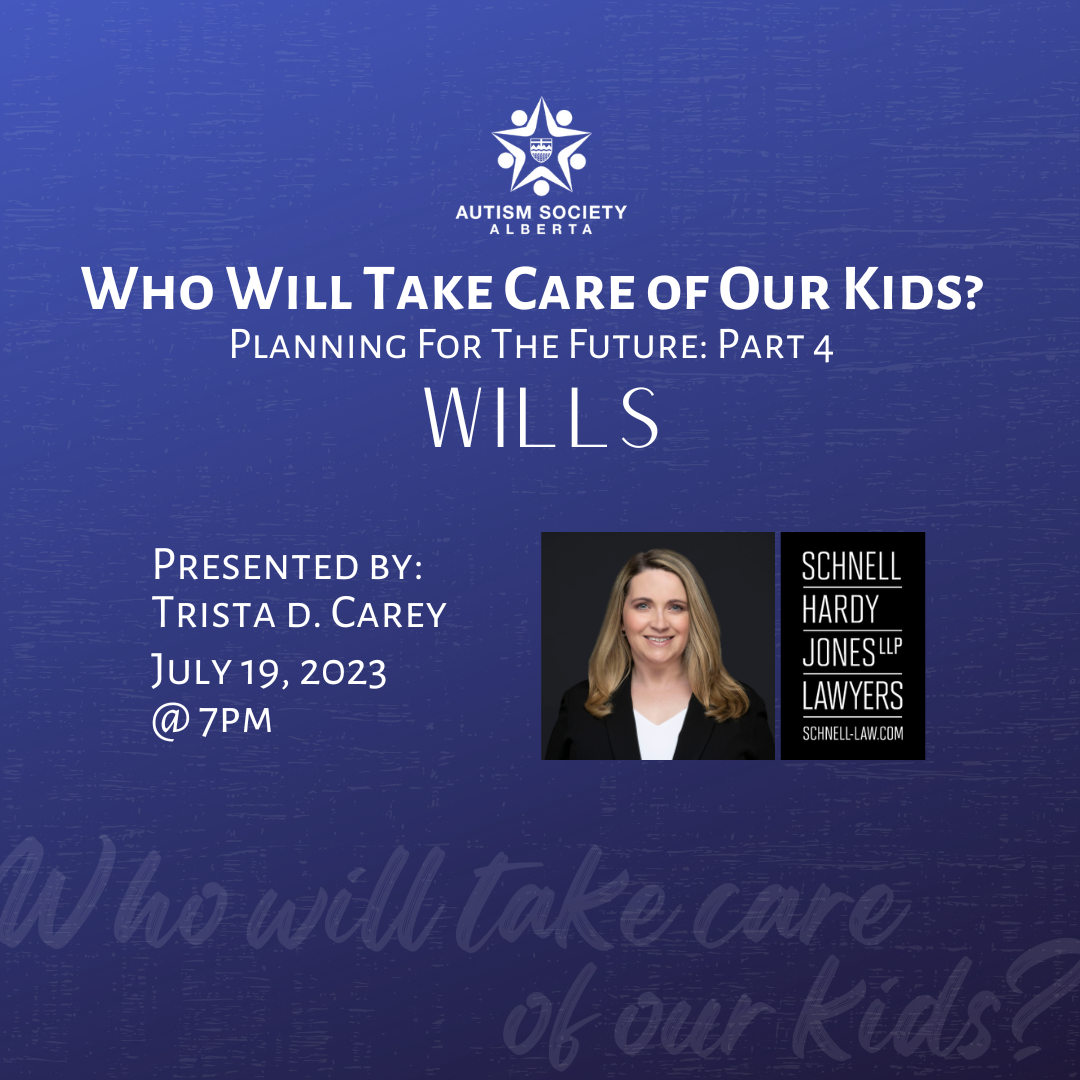
|
|
|
Transitioning to Adulthood: What I Wish I’d Known Then
Becky Poirier
When my son was sixteen, during one of his IPP meetings, we were told about a parent meeting to discuss the transition to adulthood. In my head I was thinking, that’s two years away. That’s plenty of time. You have no idea how fast that time sneaks up, though. Honestly, blink, and then it’s here. Suddenly, it was crunch time, decision time, and we still had no idea which way we planned to go.
We knew from experience that our son was not the wisest with money. He’d earn money for chores, then head to the corner store five minutes later to spend it. So, trusteeship was something we really considered. We never thought much about guardianship. When we looked at what our son was capable of, we knew we wanted to give him the chance to make his own decisions. To stumble and fall, pick himself back up, and learn from what happened. never thought much about guardianship. When we looked at what our son was capable of, we knew we wanted to give him the chance to make his own decisions. To stumble and fall, pick himself back up, and learn from what happened.
Still, we definitely waited too long to make our final decision. If we had needed to go through the courts to gain trusteeship or guardianship, we would have waited months, and by then our son would have legally been an adult. That’s the number one thing I learned from this situation - to set a deadline for when you will make your final decision.
Ultimately, when we did make the decision, we decided to make our son part of it. Maturity-wise, our son is probably around the level of a twelve-year-old, so he is definitely mature enough to have a say in what will happen with his future. If or how you choose to include your youth in the decision will depend on their mental capacity. When we sat our son down, we talked about potential living situations, the money he would receive from the government, and the bills he would be expected to pay. We explained that if he wanted to spend money on more fun things, he would need to have a job to earn that extra money. We gave our son the option of having us control the money entirely (trusteeship), and/or to make decisions for him entirely (guardianship). Our son wanted his independence, and we respected that, but we told him that if he could not manage his health, his home, or his money, we would have no choice but to go to court. We made sure he understood that if we ever did that, it would not be a punishment; it would be to help and protect him.
Pairing up as a team, our son agreed to have his father help him manage his bank account. This was a verbal agreement, so he could change his mind at any time. My son also said that he would like his dad to accompany him to medical appointments, to help him make decisions.  Because our son wanted to have extra cash to spend before he found a job, he decided he wanted a roommate. I had a friend with a son on the spectrum who is only two years older than my son. They are both on the spectrum, and both into video games, so I thought it would be a good fit. It was not. We learned very quickly that they had very different personalities. My son’s roommate likes quiet, and my son makes laser beam noises when he’s excited. And that was just one of the many issues that came up. Ultimately, his roommate moved out, and our son moved into a single-bedroom apartment in the same building. We’d managed to find a wonderful landlord, and wanted to stick with him. Because our son wanted to have extra cash to spend before he found a job, he decided he wanted a roommate. I had a friend with a son on the spectrum who is only two years older than my son. They are both on the spectrum, and both into video games, so I thought it would be a good fit. It was not. We learned very quickly that they had very different personalities. My son’s roommate likes quiet, and my son makes laser beam noises when he’s excited. And that was just one of the many issues that came up. Ultimately, his roommate moved out, and our son moved into a single-bedroom apartment in the same building. We’d managed to find a wonderful landlord, and wanted to stick with him.
Budgeting took our son time to learn. He quickly figured out that he could get around not having a credit card by buying gift cards at the drug store to order pizza or Montana’s. It took a couple of warning conversations, but he eventually understood the importance of not spending money on those things that he could not afford.
One of the other things we learned along the way is that for some reason, because our son had a roommate, PDD deemed our son ineligible for one-on-one support with cleaning and cooking in his home. When he was on his own, he was finally able to get on the waitlist for a worker, but that too, took time. He was also on the list for employment classes for nearly a year before those began. These things take time. Start early.
Whatever decision you come to, start planning early, and include those people who care about your child. It is not an easy thing to make these decisions, so if you do not have to make them alone, then don’t. Get support, and talk to your local Family Resource Centre. You are not alone. There will be bumps and hurdles, but you will make it through to the other side, and so will your child. Remember, you are their best advocate.
|
|
|
Autism Society of the RMWB

We are so excited to have Shane L. Lynch, Ph.D., coming to speak! These in-person events take place at 10019 MacDonald Ave. (Unifor Building), Fort McMurray. The Friday evening session is 1 ½ hours; Saturday is a full-day event.
The Eventbrite links are below:
Friday, April 21st
Saturday, April 22nd

|
|
|
The Struggle of Aging Caregivers
Maureen Bennie

From the Autism Awareness Centre Inc. Blog:
I read an excellent article in the Globe and Mail, about the struggles an aging population has with trying to balance work, personal life, and caregiving responsibilities. While caregiving is a labour of love, it also has another side to it that affects employment, physical/mental health, and well-being. As we age, we also have to assess how feasible it is to provide this support long-term. When I look at my situation, caring for my two autistic adult children who are now in their 20s, I worry about the future. But I also feel stuck on how to move forward because of the lack of affordable housing and financial supports, and the difficulty finding and keeping staff. I’m so tired trying to do it all that I fall asleep sitting up on the couch at 7 pm most nights. provide this support long-term. When I look at my situation, caring for my two autistic adult children who are now in their 20s, I worry about the future. But I also feel stuck on how to move forward because of the lack of affordable housing and financial supports, and the difficulty finding and keeping staff. I’m so tired trying to do it all that I fall asleep sitting up on the couch at 7 pm most nights.
The conversation about autistic people aging and the support that they will need is just beginning. For the most part, their care is the responsibility of family members. Congregate settings may not work for this population, and aging at home may be the best option for long-term happiness and well-being. How can we make aging in place a reality without taking a toll on aging family members?
Not only have we launched the initiative to create a National Autism Strategy, but there is also a call for a national caregiving strategy.
Here are some highlights from the Globe and Mail article that can help shed light on the quiet struggles of aging caregivers, and the impact this has on all Canadians.
Some Statistics on Caregiving
In 2018, 1 in 4 Canadians cared for family members or friends who were aging, had long-term health conditions, or had physical or mental disabilities, according to Statistics Canada. The Canadian Centre for Caregiving Excellence (CCCE) reported that Canadians spend 5.7 billion  unpaid hours on caregiving each year. A lack of help for caregivers costs the Canadian economy $1.3 billion in lost productivity annually, according to a report from the National Institute on Aging. Caregivers spend an average of $5,800 a year on expenses, according to a 2017 study. That figure would be higher now with inflation. unpaid hours on caregiving each year. A lack of help for caregivers costs the Canadian economy $1.3 billion in lost productivity annually, according to a report from the National Institute on Aging. Caregivers spend an average of $5,800 a year on expenses, according to a 2017 study. That figure would be higher now with inflation.
The pandemic also took its toll on caregivers. A detailed report from the University of Alberta highlighted the struggles of family caregivers during this time. Have we been resilient and bounced back from the effects of the pandemic? Personally, I don’t feel like I have.
A 2018 report from Statistics Canada showed that women take on more of the daily time-consuming tasks than men. In 2015, women spent 3.9 hours per day on unpaid work as a primary activity - 1.5 hours more than men. Women provide care in peak earning years, a time that is crucial for career advancement. This in turn affects retirement and quality of life.
Accessing Supports
Many caregivers are unaware of the financial supports available to them, and government portals for tax information are often difficult to navigate. Supports for caregivers varies widely by province. Nova Scotia has a Caregiver Benefit Program that offers $400 per month to people who put in 20 or more hours a week providing help to adults in need of care. New Brunswick has a $106.25 per month benefit for informal caregivers. Caregivers Alberta collaborates with MatchWork and the University of Alberta to help caregivers find flexible work to help them balance their responsibilities at home.
The Government of Canada has a list of caregiver benefits on their website. You can find a list of resources for seniors listed by province here.
Siblings Canada provides support to siblings of people with disabilities. A comprehensive list of caregiver support organizations can be found here. Stories for Caregivers shares knowledge of caregiving through stories, to help build empathy for better health care and social policies, and drive family and friends to available resources and communities of support.
Why We Should Care More About Caregivers
The Canadian Medical Association Journal published an article in March 2019 on why we need to care more about caregivers. While the focus of this article is mainly on caring for older adults, much of the information would apply to caring for adults with disabilities, too. Every day, 28% of the Canadian population provides care, and nearly half the population will be a caregiver at some point.
Caregivers in distress experience a range of adverse outcomes, including deteriorations in mental and physical health, disruptions in social and family relationships, and increased risk of death. These outcomes will in turn affect those in the caregiver’s life. Caregivers also need protection from economic and retirement insecurity.

We can do a much better job of supporting informal caregivers in the workplace, by developing more flexible workplaces that accommodate caregiving duties, and provide better access to paid leave and benefits. For example, the pandemic experience has shown us that people can work from home and still be productive. Most employment caregiving benefits center around someone who is dying, but the reasons for needing time off work are often far more complex.
We have the potential to do so much more for informal caregivers. Paid caregiving work, such as being a personal support worker, needs to be valued and paid more for the high level of responsibility that comes with it. The wages for my support workers, who provide care during the day for my two children so that I can work, have not increased in 8 years despite the increased cost of living and inflation. It makes it difficult to retain staff or find experienced people who are willing to work for low wages.
Caregiving is everyone’s concern. Even if you aren’t in the caregiving role, it is likely you may need caregiver support at some point in your lifetime.
|
|
|
Autism Calgary & AIDE Canada
 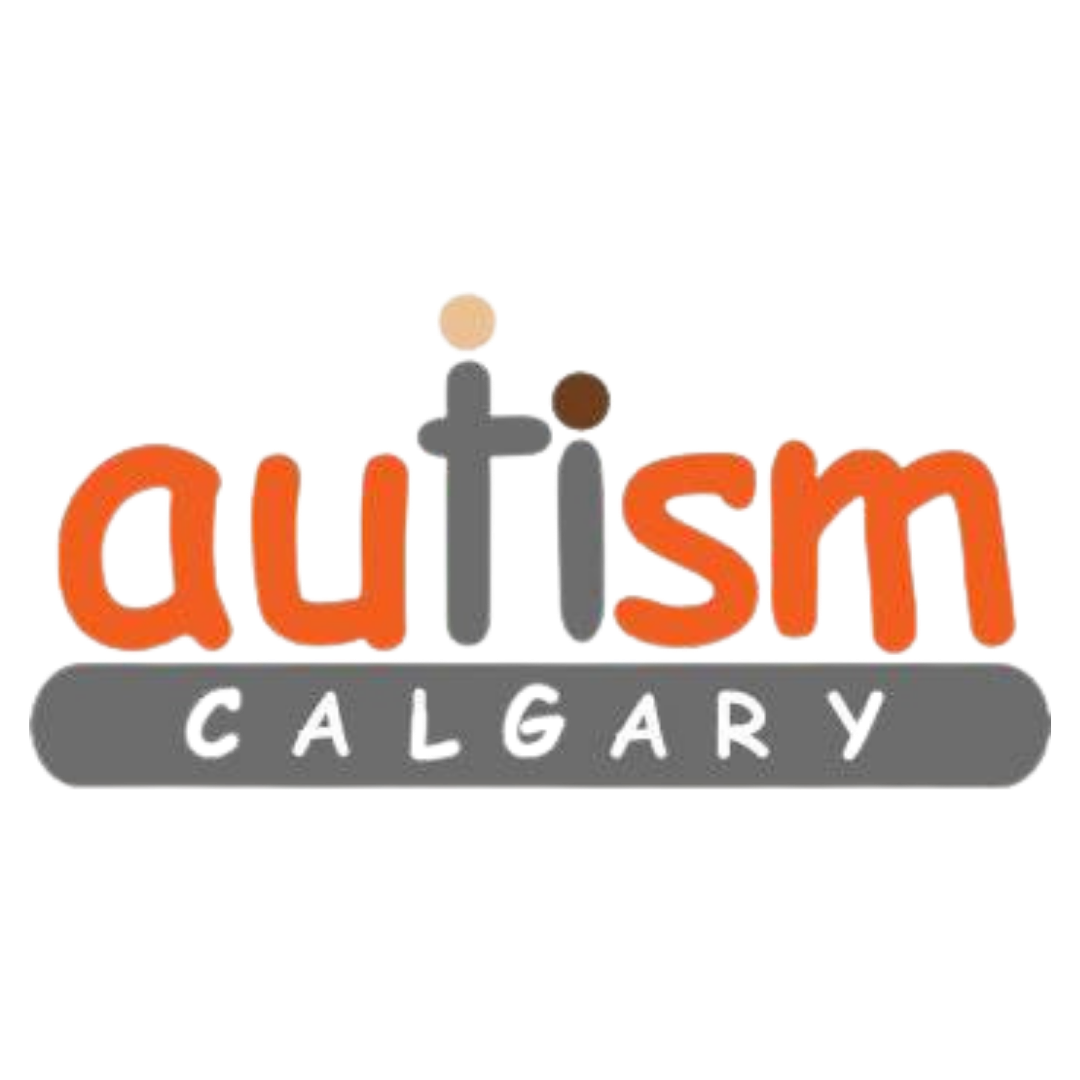
Click on the poster below to find out more and to register.

|
|
|
Society for Autism Support and Services

Back by popular demand is
Emotions 101 for Teens!
This is an in-person session. This program is supported by Els for Autism, and there is no cost to attend. Register by calling 403-258-5510 or emailing counselling@sta-ab.com
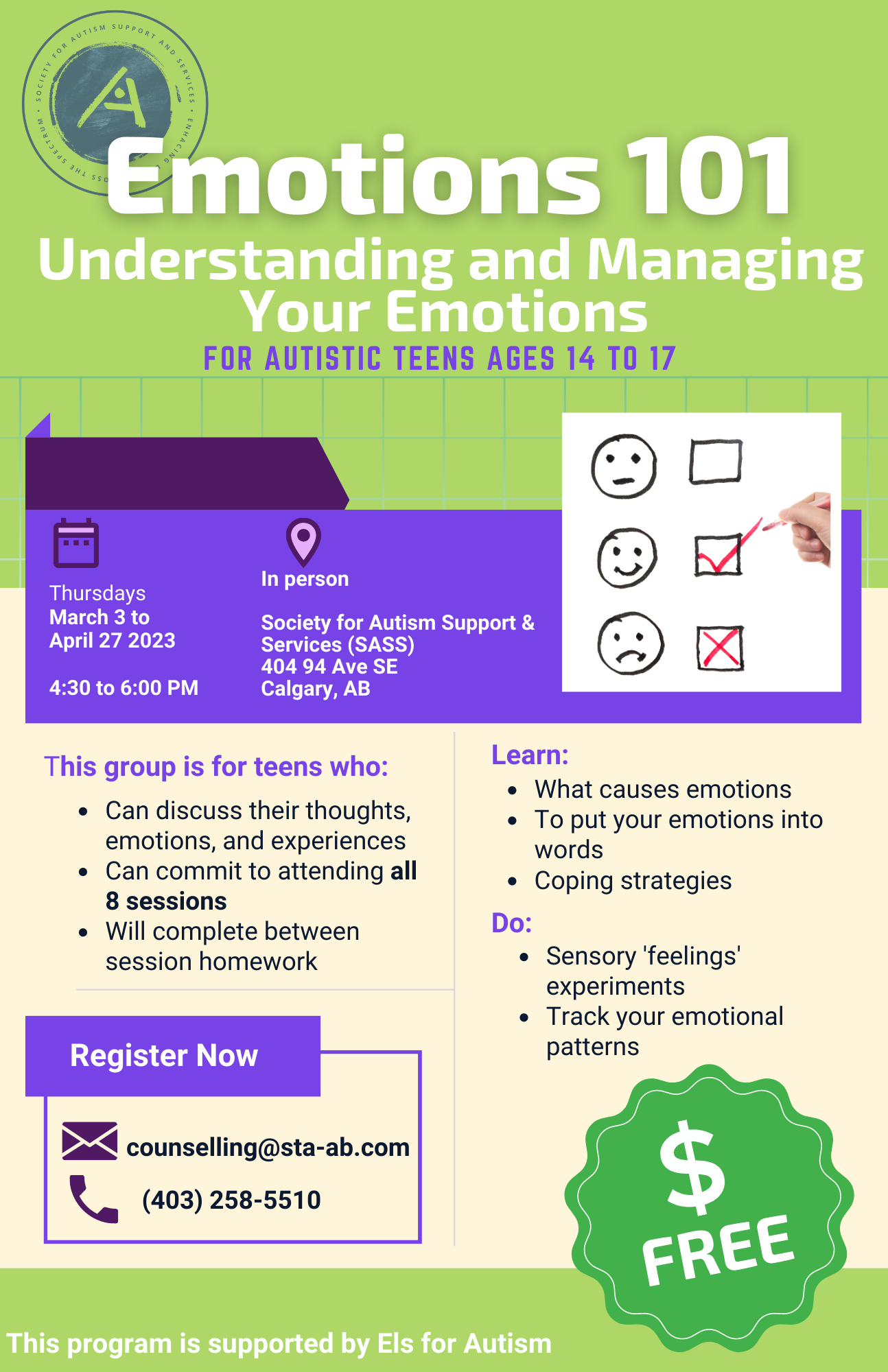
|
|
|
Children's Autism Services of Edmonton
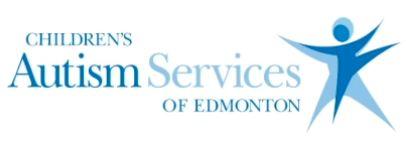
We are pleased to share that we are hosting “Dining Out for Autism” in support of Children’s Autism Services of Edmonton on Saturday, March 4th. The funds raised through this event stay in our community, and go directly to helping families in Edmonton and surrounding areas through our preschool and kindergarten programs.
Get your tickets HERE.
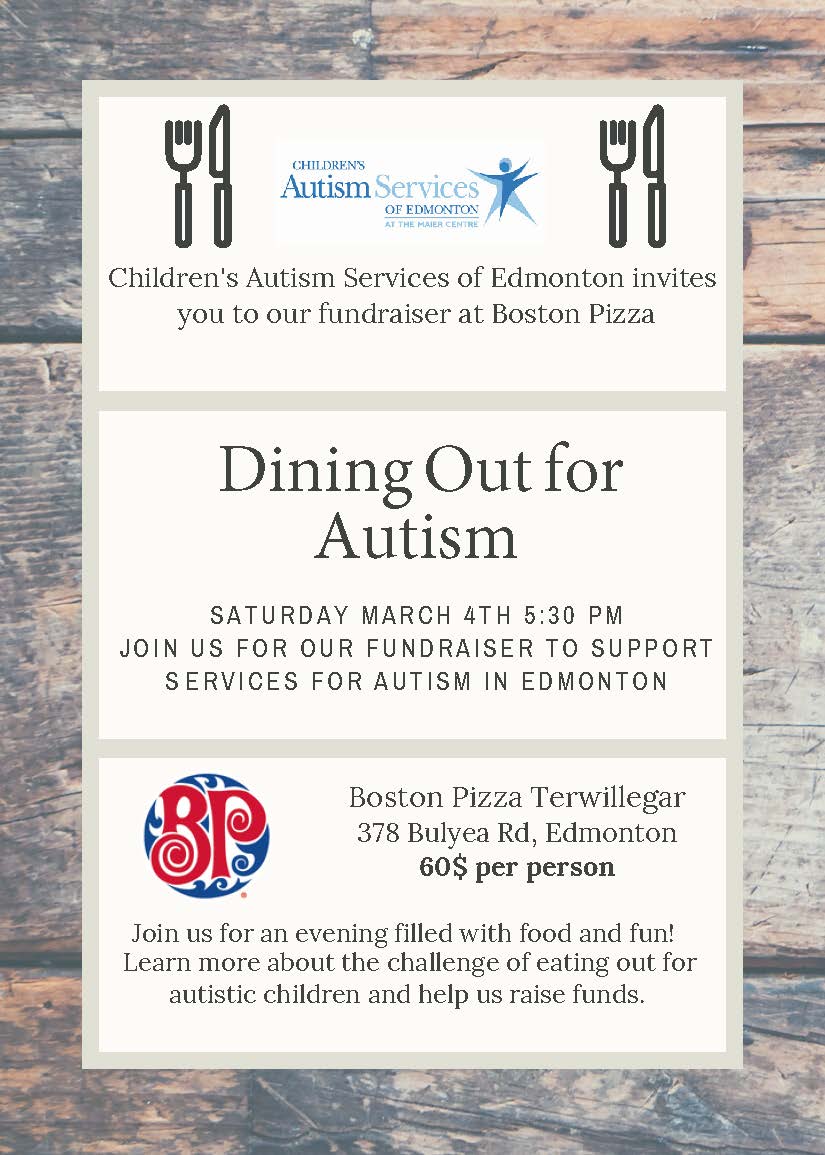
|
|
|
Centre for Autism Services Alberta
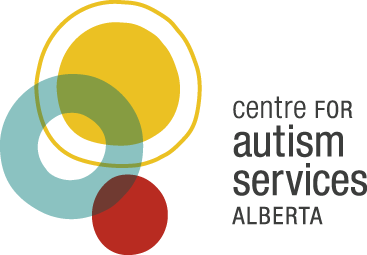
Happy February from the Centre for Autism Services Alberta!
Spring is just around the corner, and so are our spring programs! Registration for spring 2023 community programs will be open to the public on Friday, March 3rd! Check out our website and find your perfect program today.
Spring into 2023 with a New Job! EmploymentWorks (EW) offers employment readiness training, job sampling, and work experience opportunities for individuals with a disability, including but not limited to autism. Participants must be motivated to seek employment. There are two phases to the program – a 60-hour phase of classes including the opportunity to try different jobs, and a second phase which is made up of active engagement in the labour force supported by employment coaches and our job club. Enrollment is ongoing and is available to participants ages 15-64. To inquire and to register, send us an email at EmploymentWorks. Start your job search today!
It’s Time to Think About Registering for September 2023 Preschool and Kindergarten! Did you know? The Centre moved to a new location in 2022 (9353 50th Street, Edmonton), and we now offer preschool and kindergarten classes in our two brand-new state-of-the-art classrooms. While at school, children will enjoy a program space designed specifically for them, including an indoor gym and a beautiful outdoor playground. Our specialized programs are dedicated to children with developmental disabilities, and use play as a foundation for learning. We provide inclusive, individual programming for all. Our teachers and aides are highly trained professionals specializing in working with children with autism and other neurodevelopmental conditions.
For information about eligibility and programs, and to apply, email Corinne and Katrina at PUF@centreforautismab.ca or call 780-488-6600.
PEERS for Teens and PEERS for Young Adults are recruiting participants on an ongoing basis for upcoming sessions. Program for the Education and Enrichment of Relational Skills (PEERS) is a world-renowned, evidence-based social skills program for autistic teens ages 13-17, and autistic young adults ages 18-29. Participants and their parents, social coaches, or guardians meet weekly for 14 weeks (16 weeks for young adults). The skills taught in the PEERS program can help pave the way for creating healthy friendships and relationships, as well as securing meaningful employment. And now with options for in-person (Edmonton) and online delivery methods, this sought-after program is available Alberta-wide.
To learn more about PEERS for teens, visit our website HERE.
To learn more about PEERS for young adults, visit our website HERE. To apply for PEERS, email us at teenandadult@centreforautismab.ca.
Now accepting applications for Facing Your Fears for 2023. This program is for ages 8-14 and is designed for autistic children who are having difficulties managing their anxiety. A well-developed caregiver education component is part of the program, allowing strategies learned in groups to be implemented at home. Not in Edmonton? No problem! Facing Your Fears runs virtual AND in-person cohorts.
- This 14-week program consists of 90-minute sessions, once per week
- Focuses on helping children and their caregivers identify worries, develop coping strategies, and practice managing anxiety with guidance from program facilitators
- Caregiver participation is required
- Delivered by a registered psychologist
- Funding may be provided by FSCD
For more information and to apply, please contact Anne Beattie at 780-488-6600 ext. 314, or email abeattie@centreforautismab.ca
|
|
|
Sinneave Family Foundation

The Sinneave Family Foundation’s goal is to see autistic Albertans ages 15+ find success in their educational pursuits, be able to get and keep a job, and live as independently as possible as valued members of their communities. We invite you to check out the great lineup of Learning & Connection opportunities coming in March. Please note: some of these sessions offer Zoom as an option for attendance. Email info@sinneavefoundation.org in advance for the link.
Below, click on the title of each event to learn more.
Do you have plans and dreams for your future, but aren’t sure of how to make them a reality? Do you want to set meaningful goals for your life, but don’t know where to start? In this session, participants will learn about the importance of values and how they inform our life goals. Attendees will have an opportunity to participate in a values exercise and a goal-setting exercise to practice these skills. *Participants have the option of attending this session via Zoom*
Did you know that visualizing the outcomes you want can increase your confidence? Research shows that imagining or “seeing” yourself succeed helps you believe it can, and will, happen. In this session, we’ll discuss the importance of visualization and how it helps to create a positive self-image. Participants will learn how increased confidence can help an individual take steps toward making the vision and goals for their life a reality, followed by an opportunity to create their own vision board. *This session is in-person only*
When we read or search about autism, we likely notice that a lot of the information focuses on terms with negative connotations. Words like "inflexible," "rigid," or "lack of.” But we know that the medical model or definition of autism doesn’t tell the whole story, and we are passionate about doing what we can to change the narrative.
In this session, we will celebrate the positive traits and characteristics associated with autism, by viewing them through a strength-based lens. Participants will have an opportunity to share and discuss their own positive traits, enhancing their understanding, and empowering them to continue changing the language around autism.
At Sinneave, we are passionate about providing practical strategies and tools for skill-building so autistic and neurodiverse youth and adults can thrive in their everyday lives.
In this session, we’ll introduce participants to the Microsoft Office suite of tools, with the primary focus on Word, PowerPoint, and Excel, the three most used tools for daily life. Attendees will have an opportunity to listen, observe, ask questions, and practice using the software, learning the basics of each tool. Participants who attended our first Microsoft 101 session can receive enhanced instruction, either reinforcing the concepts or building on what they have already learned. *This session is in-person only*
Building off of our first Exploration Session for women, we will continue to provide timely information regarding topics that are important to autistic women. In a safe and welcoming small group setting, we’ll discuss these and more, share information, and enjoy valuable peer connection. *Participants have the option of attending this session via Zoom*
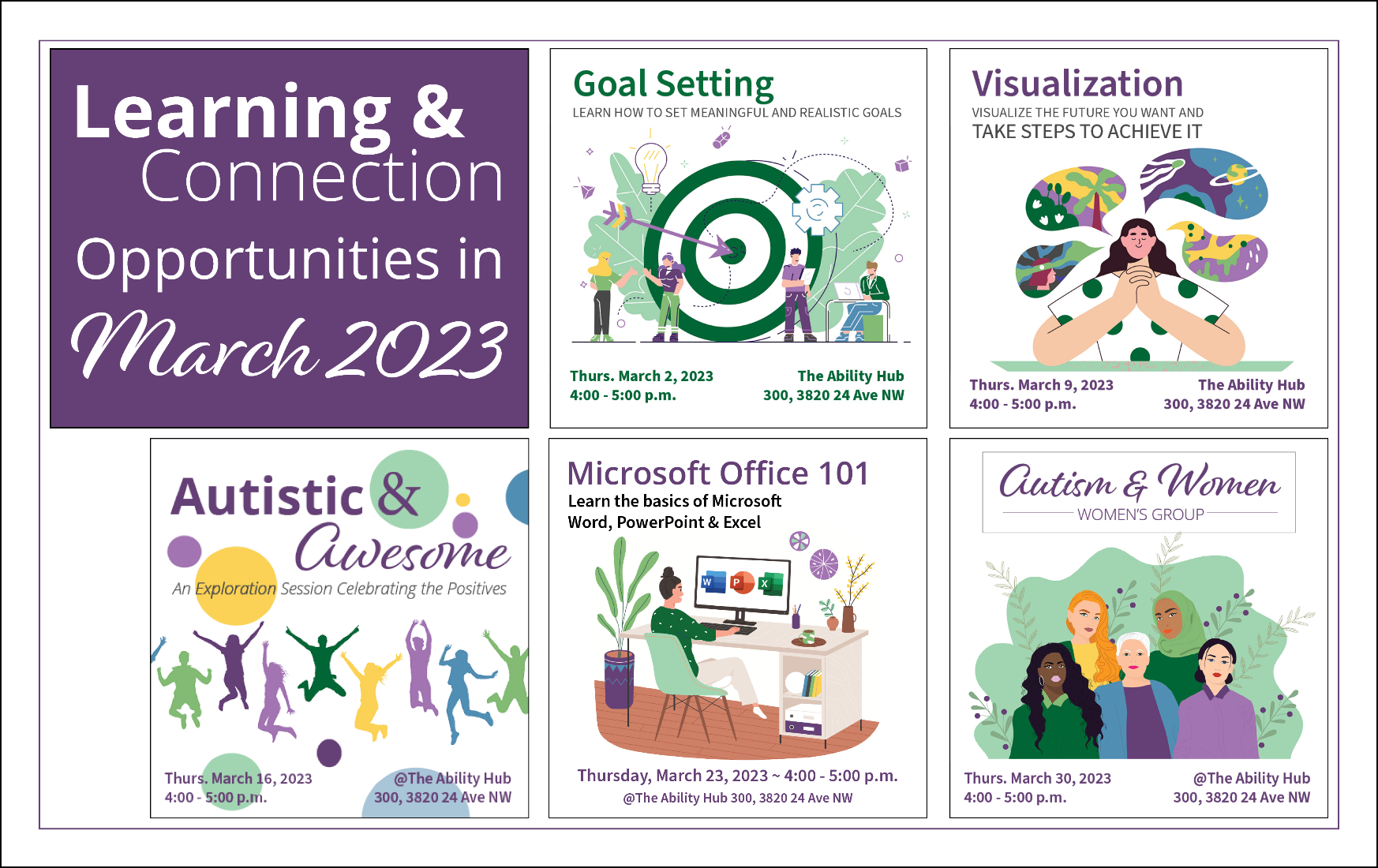
|
|
|
Upcoming Family Resource Centre Presentations
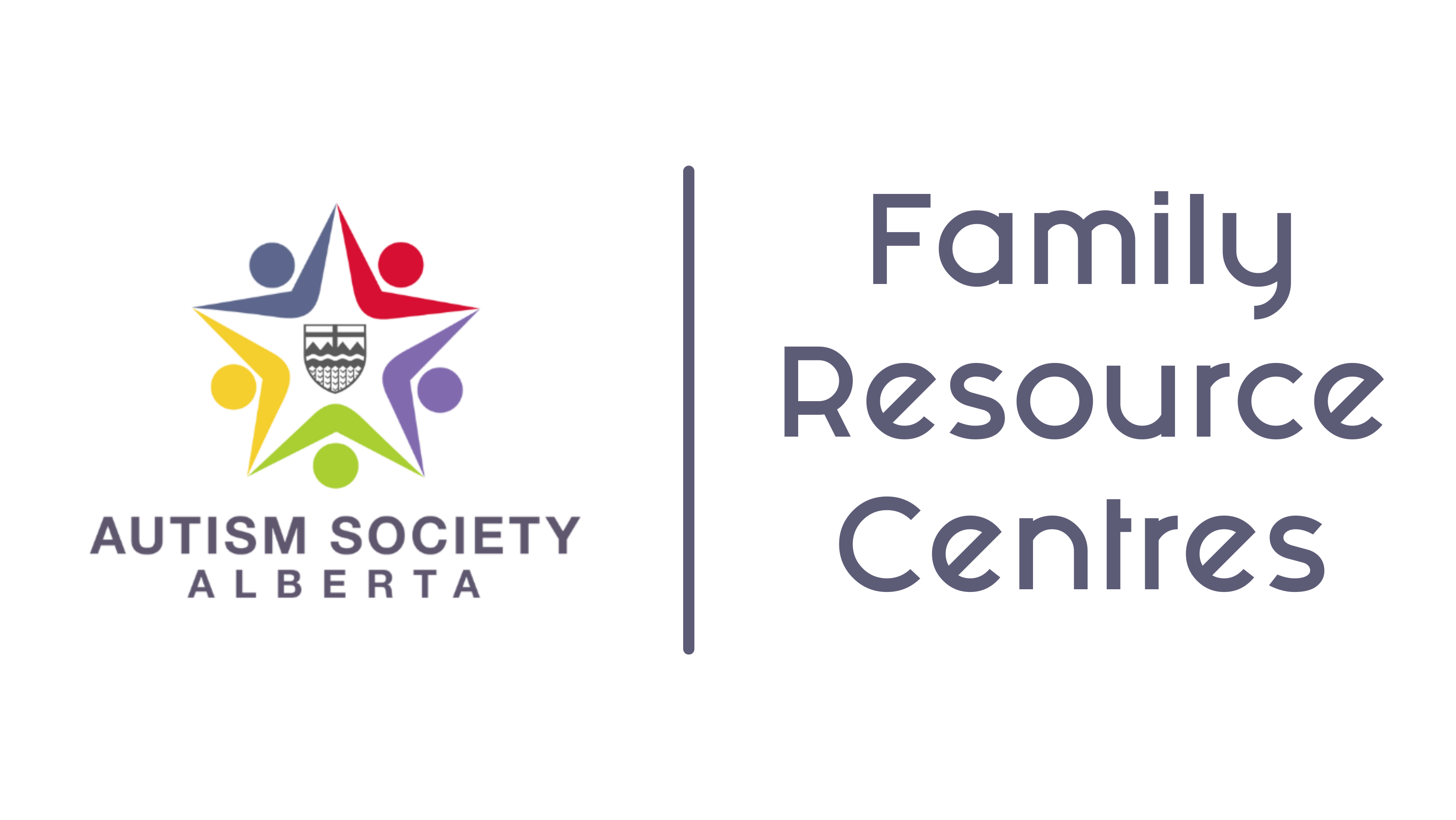
Click on the posters below to find out more or to register for one of our Family Resource Centres' upcoming presentations! Also, follow us on Eventbrite to get notified of all new and upcoming events and presentations.
Monday, February 27th at 6pm
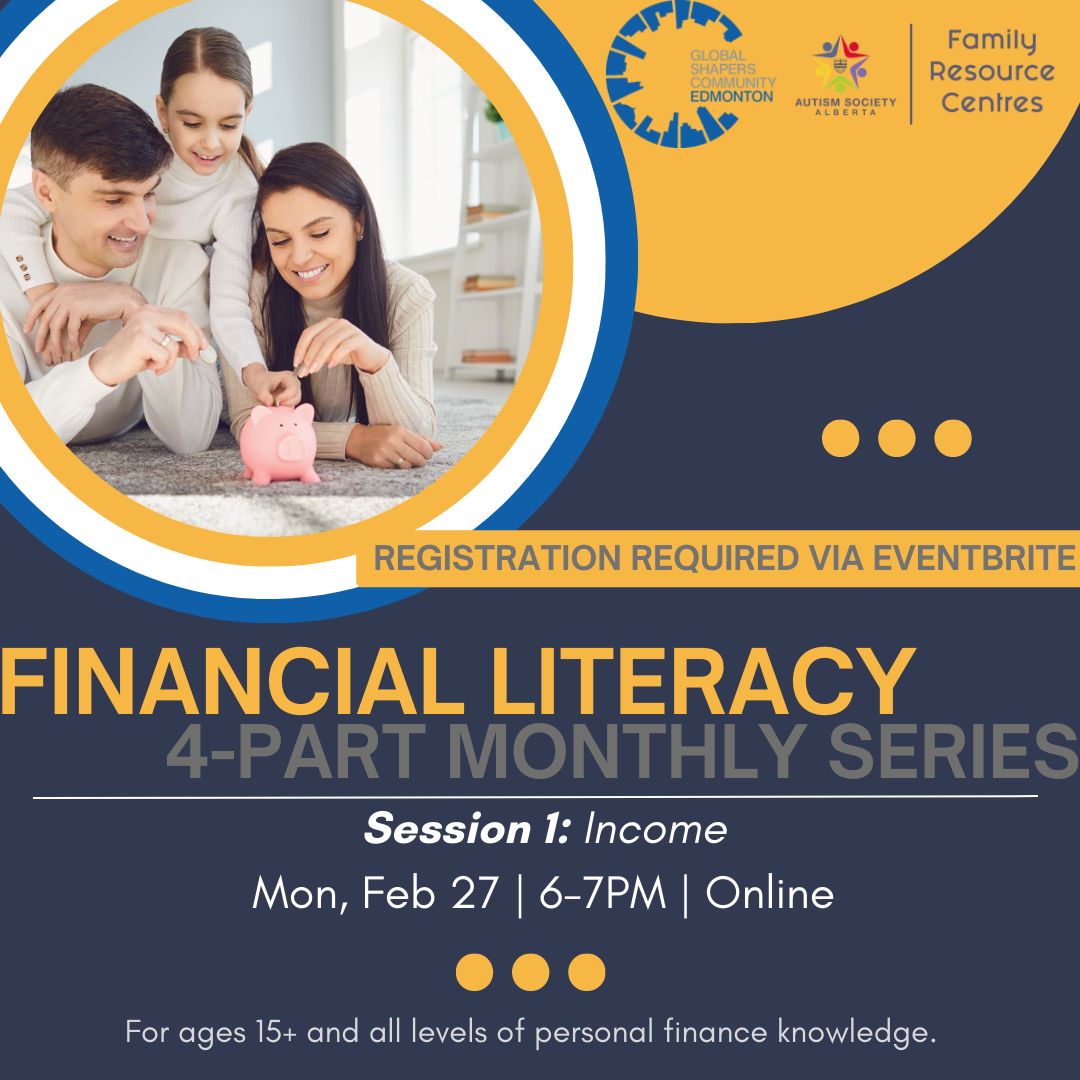
Thursday, March 2nd at 7pm
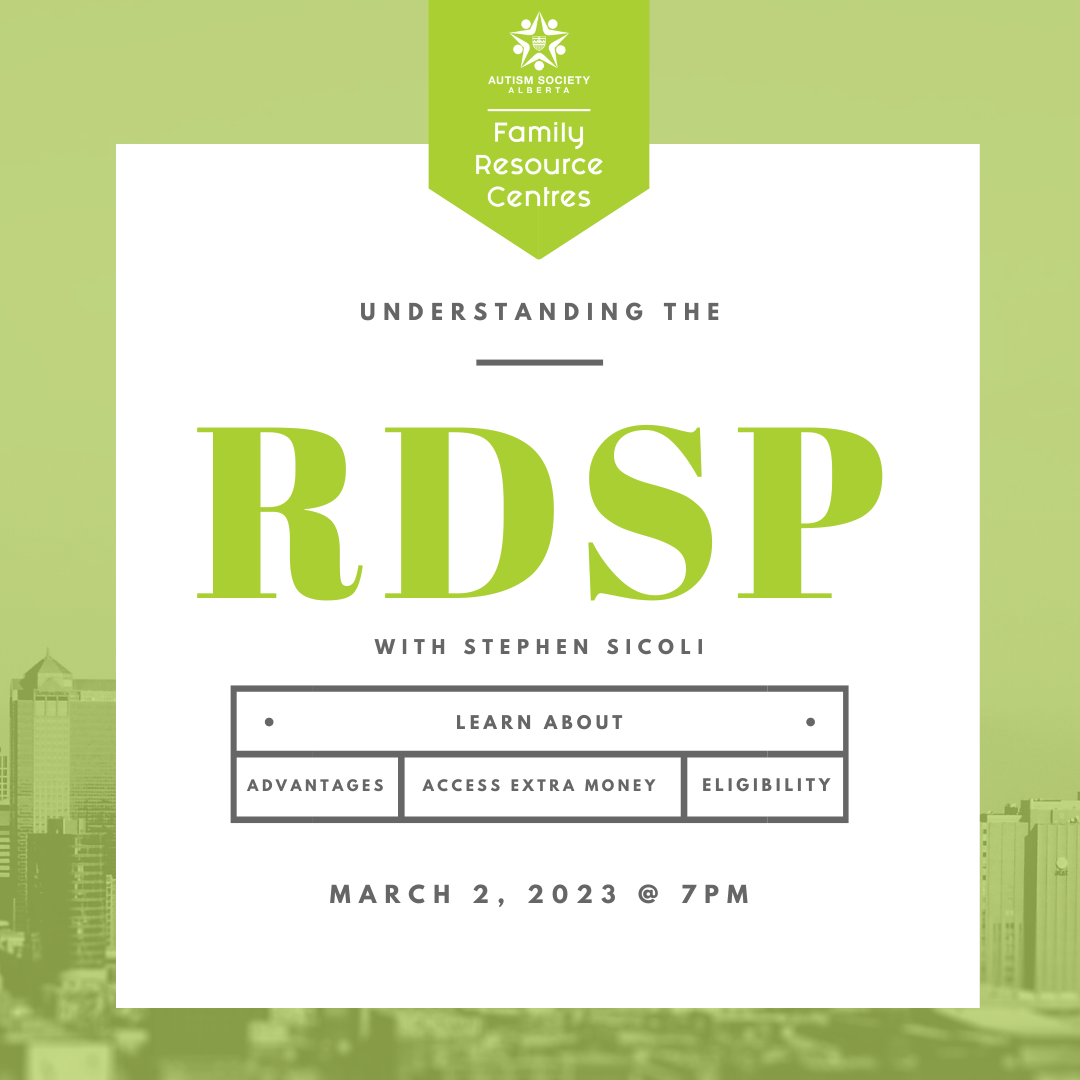
Thursday, March 16th at 6pm

Thursday, March 16th at 7pm
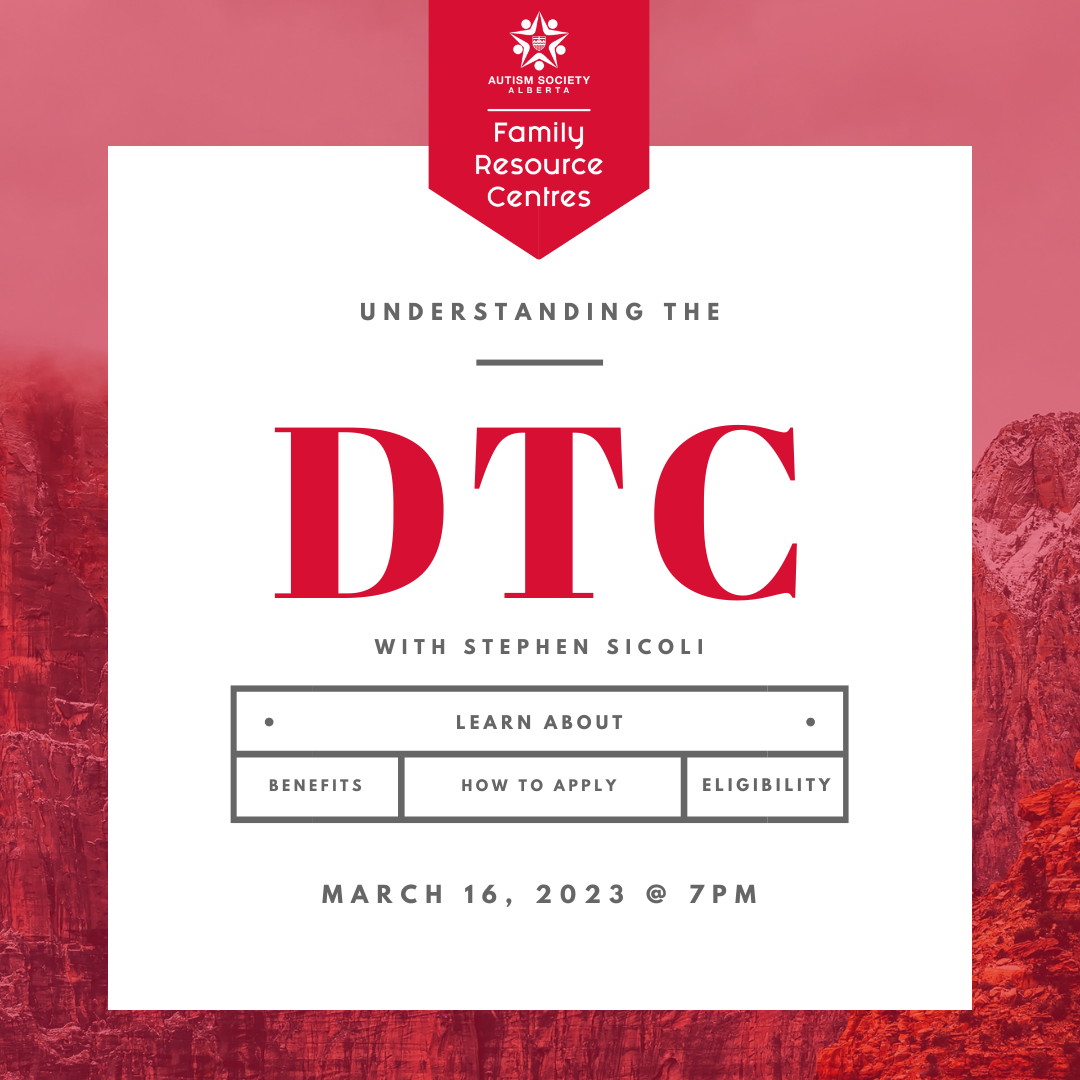
Tuesday, March 21st at 7pm

|
|
|
|
|